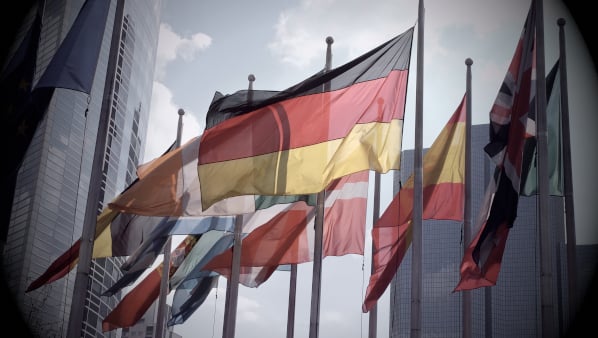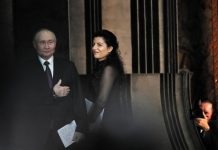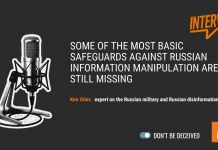Political meddling has long hampered German intelligence and security. Not any more.
By Edward Lucas, for CEPA
Penetrated by the opposition, paralysed by legal obstacles and subject to political interference, Germany’s intelligence services were for decades seen as at best useless, and at worst outright harmful. I remember a British spook in cold-war Berlin in the 1980s joking: “If you want Gorbachev to know something quickly, tell the Germans in strict secrecy: it will be on his desk in the Kremlin the next morning.”
There were many reasons. Germans for historical reasons are allergic to bugging and snooping: from their own side, that is. Surveillance operations by Russia and China to in Germany are another matter. Chancellors such as Helmut Kohl, Gerhard Schröder, Angela Merkel and Olaf Scholz did not want inconvenient truths about Russian mischief and meddling to disturb their diplomatic ego trips, or to alarm the public.
All this mattered less when the Americans (aided by their British underlings) largely ran European security. It matters a lot more now. Russia is deeply embedded in Germany, on the political far-right and far-left, among sentimental russophiles, and also in the “greedy middle”: businesses that hanker for big, cosy deals with the great eastern neighbour. So it was particularly important that in their joint annual briefing to the parliamentary oversight committee on October 13th, Germany’s three spy chiefs outlined in unprecedently stark terms the threat posed by the Kremlin.
“The Federal Chancellery has let the dogs loose” says Nathalie Vogel, a well-informed Berlin-based observer. “None of this is new – but they’ve been holding back for years. Now they have the authority to call a spade a spade.”
The most impressive figure was the new head of the foreign intelligence service (Bundesnachrichtendienst or BND), Martin Jäger. A former ambassador to Ukraine, he is married to a novelist with Czech roots: a quite different family and career background to his predecessors. His key point is that the confrontation with Russia is systemic. It is not a territorial dispute in Ukraine, but reflects the Kremlin’s intention to break Nato and undermine European democracies. Russia has already blurred the line between peace and war, he told the lawmakers. It is quite capable of a military confrontation with NATO, and not just in 2029, but earlier. He also noted that core German values such as tolerance and restraint do not work when dealing with an adversary like the Kremlin. Such behaviour is treated as weakness.
Sinan Selen, his domestic counterpart, who heads the Federal Office for the Protection of the Constitution (Bundesamt für Verfassungsschutz or BfV), took a similar tone, calling Russia “aggressive, offensive und increasingly escalatory”. It was crossing extremely dangerous boundaries, testing reactions and sending intimidatory messages. Martina Rosenberg of the military counter-intelligence service (Militärischer Abschirmdienst or MAD) said Russia was actively trying to infiltrate Germany’s armed forces.
It is not enough just to observe and describe these threats. The agencies must deal with them, actively and comprehensively, said Jäger and his colleagues. He asked (demanded might be a more accurate term) a legal framework that allows his service to do more and take more risks.
Yet as Germany girds its loins, Britain’s trousers are around its ankles. A high-profile spy trial has collapsed amid allegations of political interference. The government, it seems, refused to give prosecutors the clear statement they needed that China was a threat to national security. The spy-catchers who built the case (which involves alleged snooping on Parliament) are rightly furious, but helpless.
Now they know how their German colleagues have felt for many years. How long before Germans joke that if you want Xi Jinping to know something, tell it in strict secrecy to the Brits?
By Edward Lucas, for CEPA
Edward Lucas is a Senior Fellow and Senior Advisor at the Center for European Policy Analysis (CEPA). He was formerly a senior editor at The Economist. Lucas has covered Central and Eastern European affairs since 1986, writing, broadcasting, and speaking on the politics, economics, and security of the region.
Europe’s Edge is CEPA’s online journal covering critical topics on the foreign policy docket across Europe and North America. All opinions expressed on Europe’s Edge are those of the author alone and may not represent those of the institutions they represent or the Center for European Policy Analysis. CEPA maintains a strict intellectual independence policy across all its projects and publications.





